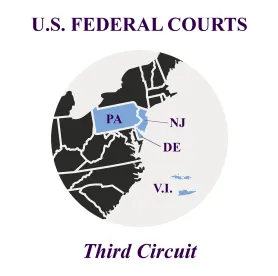In a recent employee termination case, the Third Circuit Court of Appeals recently upheld the dismissal of race discrimination claims by a bank employee who was terminated due to a social media post.
Plaintiff, a Caucasian woman, was employed as a project manager in her employer’s wealth management department. In June 2018, a public news article on a social media site reported on the arrest of a local politician who allegedly drove a car through a crowd of demonstrators protesting the shooting death of Antwon Rose, Jr., a young, African-American male, by police officers. Plaintiff publicly commented on the article under her own social media account, “[t]otal BS. He should have taken a bus to plow thru.” Plaintiff’s social media account publicly stated that she was employee of the bank.
The bank was not monitoring plaintiff’s social media account and was not aware of the post until offended users of the social media platform flooded the bank, and even its executive officers, with complaints. Plaintiff was terminated after an investigation that found her post violated the bank’s conduct and social media policies.
The District Court agreed that plaintiff violated the bank’s policies and granted summary judgment in its favor. In doing so, it rejected plaintiff’s attempts to point to African-American employees who were not terminated for their social media posts. The Court specifically found those individuals were not similarly situated because, among other things, their posts did not advocate violence, were not made in the comments section of a public news story, and did not result in a “public outcry.” The Third Circuit affirmed the dismissal and agreed the alleged comparators were not similarly situated. The Court specifically agreed plaintiff’s post was far more egregious than those of the alleged comparators and was far more likely to harm to the bank’s reputation.
Over the past few years, states around the country have enacted laws limiting an employer’s ability to access the personal social media accounts of job applicants and employees. However, these laws generally do not prohibit employers from conducting certain investigations, such as to ensure compliance with state or federal laws, regulatory requirements or prohibitions against work-related employee misconduct based on the receipt of specific information about activity on an employee or applicant’s personal online account. Employers also may monitor, review, access or block electronic data stored on an electronic communications device paid for, in whole or in part, by the employer, or traveling through or stored on the employer’s network.
When companies are faced with adverse social media activity or campaigns, whether it be by employees, customers, bloggers, etc., they frequently are unprepared to take the appropriate steps to investigate, or to weigh the legal, business, reputational, and related risks in deciding what actions, if any, to take. For this reason, it is important to have a clear workplace social media policy in place to help prevent the likelihood of an incident or at least limit its impact. But while courts and the National Labor Relations Board (NLRB) seem to be employer friendly of late in approval of such policies, it is important to tread carefully, aiming to develop a policy that achieves the company’s legitimate business interests without compromising its employees’ right to privacy under statutory and common law and rights related to freedom of speech. Employers should continue to exercise care when addressing and/or responding to their employees’ social media usage. Jackson Lewis attorneys are available to assist with those and other issues and formulate preventative strategies that mitigate risk.





 />i
/>i
